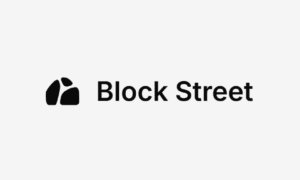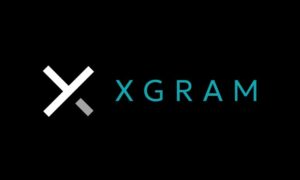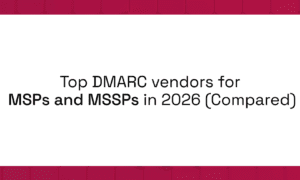In a newly released Q2 institutional sentiment report, Bitex Wealth has seen a marked increase in trust and platform preference among German institutional traders. The findings indicate a growing alignment between Bitex Wealth’s infrastructure, risk management protocols, and the demands of professional asset managers operating in one of Europe’s most tightly regulated financial environments.
The survey, conducted internally across over 140 German institutional trading entities—including hedge funds, family offices, fintech-backed investment firms, and independent wealth managers—measured perceptions of transparency, platform stability, compliance integration, and overall operational reliability. Results revealed that 78% of respondents had a “high” or “very high” level of trust in Bitex Wealth’s capabilities, a notable increase from 54% in the previous quarter.
This shift comes as Germany continues to take a leadership role in the European crypto regulation space. The adoption of the EU’s MiCA (Markets in Crypto-Assets) framework has placed heightened compliance expectations on platforms servicing both retail and institutional users. In response, Bitex Wealth has expanded its regulatory stack to include deeper anti-money laundering (AML) capabilities, real-time audit trails, and improved risk flagging tools—all of which appear to have resonated with institutional operators seeking secure and compliant infrastructure.
Respondents highlighted three core drivers behind their growing trust: platform stability during periods of volatility, data transparency in reporting, and proactive compliance alignment with BaFin standards. These features have proven essential as institutional traders seek platforms that support not only asset diversification but also operational consistency and legal clarity.
Stability under stress was a recurring theme throughout the survey results. During several high-volume trading windows in Q1 and Q2 2025—triggered by macroeconomic news and price corrections—Bitex Wealth maintained 99.96% uptime with no recorded disruptions to order execution or portfolio visibility. This level of resilience stood out among respondents who had experienced partial outages or delayed access on competing platforms.
Transparency was another area in which Bitex Wealth scored particularly well. The platform offers institutions a full suite of downloadable reports covering trade execution, margin utilization, historical profit-and-loss tracking, and counterparty risk exposure. These tools, developed in collaboration with German financial analysts, were designed to meet the reporting requirements of internal compliance teams and external auditors. The availability of automated regulatory reports in MiCA-aligned formats has further enhanced the appeal of the platform for enterprise clients.
The survey also explored sentiment around client servicing and integration. More than two-thirds of institutional respondents noted improvements in their onboarding and support experience over the last six months. Bitex Wealth’s Institutional Desk, launched earlier this year, provides German clients with dedicated support personnel trained in regulatory communication, crypto risk mitigation, and integration with existing trading infrastructure. Feedback from firms using API access to run algorithmic strategies noted reduced latency and stronger execution consistency following the platform’s backend optimizations in March.
Another critical finding from the Q2 survey is that many institutional traders view Bitex Wealth as a strategic bridge between traditional financial systems and emerging digital asset ecosystems. The platform’s hybrid architecture—merging DeFi principles with centralized compliance controls—has been particularly attractive to entities that need to balance innovation with fiduciary responsibility. Rather than forcing firms to choose between security and opportunity, Bitex Wealth’s model offers both in a framework designed to withstand regulatory scrutiny.
Institutional traders also noted appreciation for the level of control available on the platform. From adjustable leverage ceilings to asset whitelist management and cross-portfolio analytics, the tools on offer allow risk-sensitive firms to maintain oversight and enforce their internal trading mandates. These features are viewed as indispensable by compliance officers and fund managers alike, particularly in Germany’s risk-averse financial environment.
As larger capital allocators move toward crypto exposure in Germany, Bitex Wealth’s positioning appears increasingly advantageous. Survey respondents noted the importance of working with platforms that demonstrate not only liquidity and efficiency but also an institutional-grade commitment to security and governance. Bitex Wealth’s recent infrastructure audits, conducted by an EU-accredited cybersecurity firm, were cited as positive reinforcements of platform trustworthiness.
Beyond infrastructure and compliance, the Q2 survey also captured a shift in perception regarding long-term strategic alignment. A growing number of firms reported that Bitex Wealth is no longer seen simply as a crypto execution venue—but as a broader technology partner capable of supporting future digital asset strategies. As the tokenization of securities, smart contract integration, and ESG-based crypto indices gain traction in Germany, platforms with flexible architecture and strong local partnerships are expected to lead the next phase of institutional adoption.
The findings of the Q2 report underscore the evolving nature of institutional participation in the German crypto market. What once began as exploratory engagement is now evolving into structured, compliance-oriented capital deployment—and Bitex Wealth is increasingly recognized as a reliable enabler of that shift.
As trust continues to play a decisive role in how and where institutional investors choose to engage with digital assets, Bitex Wealth’s steady gains in reputation signal not only user satisfaction but long-term confidence from one of Europe’s most sophisticated trading populations.































